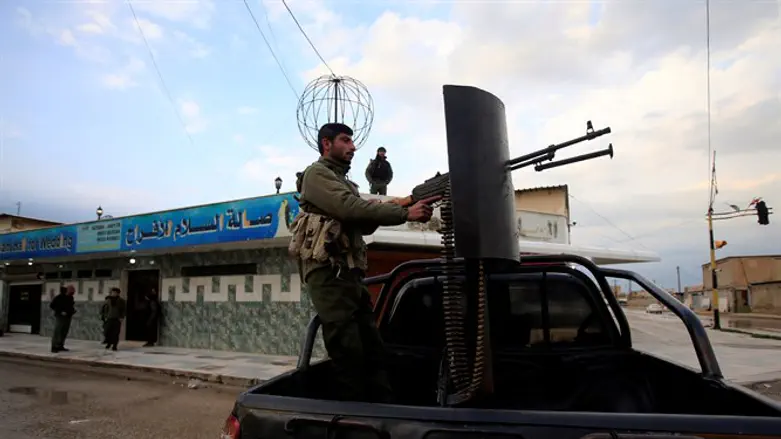
Dozens of Kurdish fighters on Sunday left the Turkish-besieged town of Ras al-Ain in northern Syria, in what appeared to be the start of a wider withdrawal under a ceasefire deal, AFP reports.
Ankara launched a cross-border attack against Syria's Kurds on October 9 after the United States announced a military pullout from the north of the war-torn country.
A US-brokered ceasefire was announced late Thursday, giving Kurdish forces until Tuesday evening to withdraw from a "safe zone" Ankara wants to create along its southern frontier.
A Kurdish source said on Sunday there was a "plan to withdraw" from Ras al-Ain, and the British-based Syrian Observatory for Human Rights later said Kurdish forces had fully withdrawn from the border town.
Turkey's defense ministry confirmed that Kurdish fighters were leaving the town.
In a statement, it said 55 vehicles had entered Ras al-Ain and 86 had left "in the direction of Tal Tamr" to the south.
It also said one of its troops was killed by Kurdish forces near the town of Tal Abyad.
At least 50 vehicles, including ambulances, left the town hospital in Ras al-Ain, from which flames erupted shortly after their departure, according to AFP.
Dozens of fighters in military attire left on pickups, passing by checkpoints manned by Ankara-allied Syrian fighters, the report said.
The departure from Ras al-Ain came a day after a medical convoy managed to evacuate wounded from the hospital.
Despite the ceasefire, Turkish President Recep Tayyip Erdogan has continued to threaten the Kurds. On Friday, he warned that his country would restart its operation against Kurdish forces in Syria on Tuesday evening if they did not withdraw from the "safe zone".
On Saturday, Erdogan warned that if there is no solution to the Kurdish crisis "Turkey will find a solution for itself" and threatened to “smash the heads of the Kurdish terrorists."
The Kurds have been a key ally to Washington in the US-backed fight against Islamic State (ISIS) group jihadists in Syria, but Turkey views them as "terrorists" linked to Kurdish militants on its own soil.
(Arutz Sheva’s North American desk is keeping you updated until the start of Simchat Torah and Shmini Atzeret in New York. The time posted automatically on all Arutz Sheva articles, however, is Israeli time.)